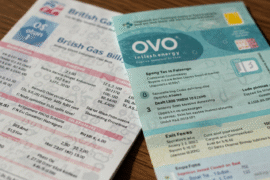This article may contain references to products or services from one or more of our advertisers or partners. We may receive compensation when you click on links to those products or services. Nonetheless, our opinions are our own.
The information presented in this article is accurate to the best of our knowledge at the time of publication. However, information is subject to change, and no guarantees are made about the continued accuracy or completeness of this content after its publication date.
One of the most important financial decisions you’ll ever make is buying a home, and knowing how the real estate market changes can make all the difference. The time of year, the state of the economy, and the state of the market can all have an effect on everything from home prices to the level of competition. If the market is hot and there are a lot of buyers, or if it’s slowing down and there are a lot of motivated sellers, knowing how to change your approach can help you get the best deal at the right time.
We’ll look at how the weather and the state of the market affect homebuying and gives buyers tips on how to do well no matter what time of year it is.
- How Market Conditions Shape the Homebuying Process
- The Role of Seasonal Trends in Homebuying
- Financial Readiness: Preparing for Homeownership
- Exploring Mortgage Options
- Making a Competitive Offer Based on Market Conditions
- What Happens After Purchasing a Home?
- Final Thoughts
- Frequently Asked Questions
- Recommended Reads
How Market Conditions Shape the Homebuying Process
The housing market is always shifting, driven by factors such as mortgage rates, housing inventory, and economic conditions. Whether you’re buying in a seller’s market, a buyer’s market, or a balanced market, each scenario requires a unique strategy.
| Market Type | Characteristics |
|---|---|
| Seller’s Market (Hot Market) | High demand, limited inventory, rising prices, and frequent bidding wars. Buyers must act quickly and often compete with multiple offers. |
| Buyer’s Market (Cold Market) | More available homes, stable or declining prices, and less competition. Buyers have stronger negotiating power and more time to make decisions. |
| Neutral Market | A balanced level of supply and demand, leading to moderate price changes and fewer competitive bidding situations. |
Recognizing market conditions is essential before making an offer, as it can determine how aggressively you need to negotiate or how flexible you should be with terms.
The Role of Seasonal Trends in Homebuying
The real estate market is not only shaped by economic factors but also by seasonal trends. Timing your home purchase with the seasons can impact pricing, availability, and competition.
Spring & Summer: High Activity, Higher Competition
- Increased Inventory: More homes are listed, providing a wider selection for buyers.
- Rising Prices: Peak demand can push prices higher, making it more challenging to negotiate.
- Faster Sales: Homes sell quickly, requiring buyers to act fast with strong offers.
- Stronger Curb Appeal: Landscaping and exterior maintenance are at their best, making properties more attractive.
Fall & Winter: Slower Pace, More Negotiation Power
- Fewer Buyers: Many buyers pause their searches, reducing competition.
- More Negotiation Opportunities: Sellers may be more open to price reductions, covering closing costs, or making repairs.
- Limited Inventory: Fewer homes are listed, meaning options may be more restricted.
- Seasonal Discounts: Moving companies and home service providers may offer lower rates.
Choosing the right season to buy depends on your priorities. If selection is your main concern, spring and summer offer more choices, while fall and winter may provide better deals.
Financial Readiness: Preparing for Homeownership
Before entering the market, ensuring financial stability is essential. Taking the time to evaluate your finances and explore mortgage options can make the process smoother and improve your chances of securing a favorable loan.
Financial Considerations
- Credit Score: A higher score can help secure lower interest rates and better loan terms.
- Down Payment: While a 20% down payment can eliminate private mortgage insurance (PMI), several loan programs allow lower down payments.
- Debt-to-Income Ratio: Lenders typically prefer a ratio below 43% for mortgage approval.
- Closing Costs & Emergency Fund: Homebuyers should budget for 2-5% of the home’s price in closing costs and maintain savings for unexpected expenses.
Voted "Best Overall Budgeting App" by Forbes and WSJ
Monarch Money helps you budget, track spending, set goals, and plan your financial future—all in one app.
Get 50% OFF your first year with code MONARCHVIP
Exploring Mortgage Options
Selecting the right mortgage is an essential part of the homebuying process. Understanding the differences between loan types can help determine the best fit for your financial situation.
| Loan Type | Features |
|---|---|
| Conventional Loan | Requires strong credit; down payments as low as 3% for qualified buyers. |
| FHA Loan | Backed by the government, lower credit score requirements, and a 3.5% down payment. |
| VA Loan | Available to veterans and active-duty military; no down payment required. |
| USDA Loan | Designed for rural homebuyers, offering zero down payment for eligible properties. |
Making a Competitive Offer Based on Market Conditions
Once financial readiness is established, the next step is crafting a strong offer tailored to current market conditions.
Winning Strategies in a Hot Market
- Get Pre-Approved: Demonstrates financial readiness and makes offers more competitive.
- Act Quickly: Desirable homes sell fast, so prompt decision-making is necessary.
- Make a Strong Initial Offer: Low offers may be overlooked when multiple buyers are competing.
- Limit Contingencies: While inspections and appraisals are important, reducing unnecessary contingencies can make an offer more appealing.
- Be Flexible with Seller Requests: Accommodating the seller’s preferred closing timeline can be an advantage.
Maximizing Opportunities in a Slow Market
- Negotiate on Price and Terms: Sellers may be willing to accept lower offers, cover closing costs, or make home repairs.
- Take Your Time: With fewer competing buyers, there is more room to evaluate multiple properties.
- Request Concessions: In slower markets, sellers may agree to additional incentives such as appliance upgrades or home warranties.
Each market condition requires a different approach, and being prepared to adjust strategies can improve the chances of securing a favorable deal.
What Happens After Purchasing a Home?
Once the homebuying process is complete, managing the financial and practical aspects of homeownership becomes the priority.
- Budget for Ongoing Costs: Monthly expenses include mortgage payments, property taxes, homeowners insurance, and maintenance costs.
- Build Home Equity: Paying more than the minimum mortgage payment or making strategic home improvements can increase property value.
- Stay Informed on Market Trends: Monitoring shifts in the housing market can help homeowners make informed decisions about refinancing, selling, or investing in renovations.
Final Thoughts
Buying a house is a big investment, and whether or not you succeed often depends on when you buy, how well you plan your finances, and how well you make decisions. Buyers can get an edge in either a competitive seller’s market or a slower buyer’s market by knowing how market conditions and seasonal trends affect homebuying. Homebuyers can feel more confident about the process and have long-term success by staying up to date, being financially ready, and making offers that fit the market.
Frequently Asked Questions
Is it better to buy in a hot or cold market?
Both market conditions have benefits. Hot markets offer a wider selection but require quicker decision-making, while cold markets allow for greater negotiation flexibility.
How much should be saved before purchasing a home?
Beyond the down payment, homebuyers should set aside funds for closing costs, moving expenses, and emergency repairs.
Are there loan options for buyers who cannot afford a large down payment?
Yes, FHA, VA, and USDA loans provide options for buyers with lower down payments. However, additional costs such as PMI may apply.

Reviewed and edited by Albert Fang.
See a typo or want to suggest an edit/revision to the content? Use the contact us form to provide feedback.
At FangWallet, we value editorial integrity and open collaboration in curating quality content for readers to enjoy. Much appreciated for the assist.
Did you like our article and find it insightful? We encourage sharing the article link with family and friends to benefit as well - better yet, sharing on social media. Thank you for the support! 🍉
Article Title: Seasonal Homebuying Strategies: Navigating Hot and Cold Markets
https://fangwallet.com/2025/07/17/seasonal-homebuying-strategies-navigating-hot-and-cold-markets/The FangWallet Promise
FangWallet is an editorially independent resource - founded on breaking down challenging financial concepts for anyone to understand since 2014. While we adhere to editorial integrity, note that this post may contain references to products from our partners.
The FangWallet promise is always to have your best interest in mind and be transparent and honest about the financial picture.
Become an Insider

Subscribe to get a free daily budget planner printable to help get your money on track!
Make passive money the right way. No spam.
Editorial Disclaimer: The editorial content on this page is not provided by any of the companies mentioned. The opinions expressed here are the author's alone.
The content of this website is for informational purposes only and does not represent investment advice, or an offer or solicitation to buy or sell any security, investment, or product. Investors are encouraged to do their own due diligence, and, if necessary, consult professional advising before making any investment decisions. Investing involves a high degree of risk, and financial losses may occur including the potential loss of principal.
Source Citation References:
+ Inspo
There are no additional citations or references to note for this article at this time.












































